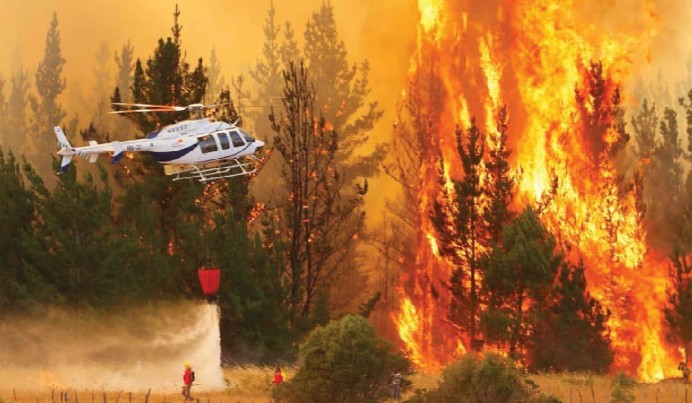Wildfires showed a significant decrease in the Biobío region this season compared to the previous year. This was reported by the regional director of Conaf, Esteban Krause, in an interview with Diario La Tribuna and Radio San Cristóbal, where he discussed the fire season’s outcomes, applied strategies, and the challenge of prevention.
So far this season, the region has recorded 1,054 wildfires, representing a 20% reduction compared to the previous season. Similarly, the affected area decreased by 23%, which Krause attributes to the implementation of a rapid-response strategy involving collaboration between Conaf, forestry companies, municipalities, and emergency services.
However, the regional director warned that the number of fires remains high and emphasized that most are human-caused, whether due to negligence or intentional acts.
Among the main identified causes are work with tools that generate sparks, waste burning under adverse weather conditions, and a lack of preventive measures in high-risk areas.
Facing this scenario, Krause highlighted the need to strengthen public awareness and improve planning for settlements in rural areas, considering safety factors such as the distance between homes and forested zones. He also underscored joint efforts with law enforcement to investigate and penalize intentionally set fires.
Below is the full interview with Esteban Krause, regional director of Conaf:
-What is the assessment of the wildfire season in the Biobío region this year?
-Overall, we’ve seen a decrease in the number of fires and the affected area. Compared to last season, we’ve had 1,054 wildfires, a 20% reduction, and 4,025 hectares burned, which is 23% less than the 2023-2024 period when 5,196 hectares were affected. These are positive numbers for the province, but the incidence remains high.
-What do you attribute this reduction in wildfires to?
-It’s due to several strategies. One is the coordinated action we’ve called the "single strike," where Conaf works alongside forestry companies, municipalities, firefighters, carabineros (police), and the Investigative Police to prevent fires and respond swiftly when they occur. In this regard, our current priority is rapid response, because climatic conditions—climate change, low humidity, strong winds, and high temperatures—cause any fire to spread quickly. So, this "single strike" effort means deploying all resources to the first detected fire immediately.
-What are the main causes of the recorded wildfires?
-In most cases, fires are human-caused, whether due to carelessness or intent. For example, we’ve seen situations where people use tools like angle grinders or perform welding in high-temperature and windy conditions, creating sparks that ignite fires. Others burn dry leaves without precautions. A lack of awareness about the risks remains a problem.
-What measures do you consider essential to prevent future fires?
-Educating the public, especially those living in or visiting rural areas, is key. Many don’t realize the danger of being near forests without preventive measures. For instance, homes should have proper firebreaks and not be adjacent to wooded areas. We’re also working with authorities to investigate intentional fires and penalize those responsible.
-What is Conaf’s message to the community?
-We urge responsibility and awareness. People must understand that any reckless action can lead to severe wildfires. Often, individuals aren’t fully aware of the risks. For example, someone using an angle grinder likely did so without ill intent—they just didn’t realize the danger. We advise clearing the ground of branches and debris.
Source:La Tribuna







Comments (0)
No comments yet. Be the first to comment!
Leave a comment